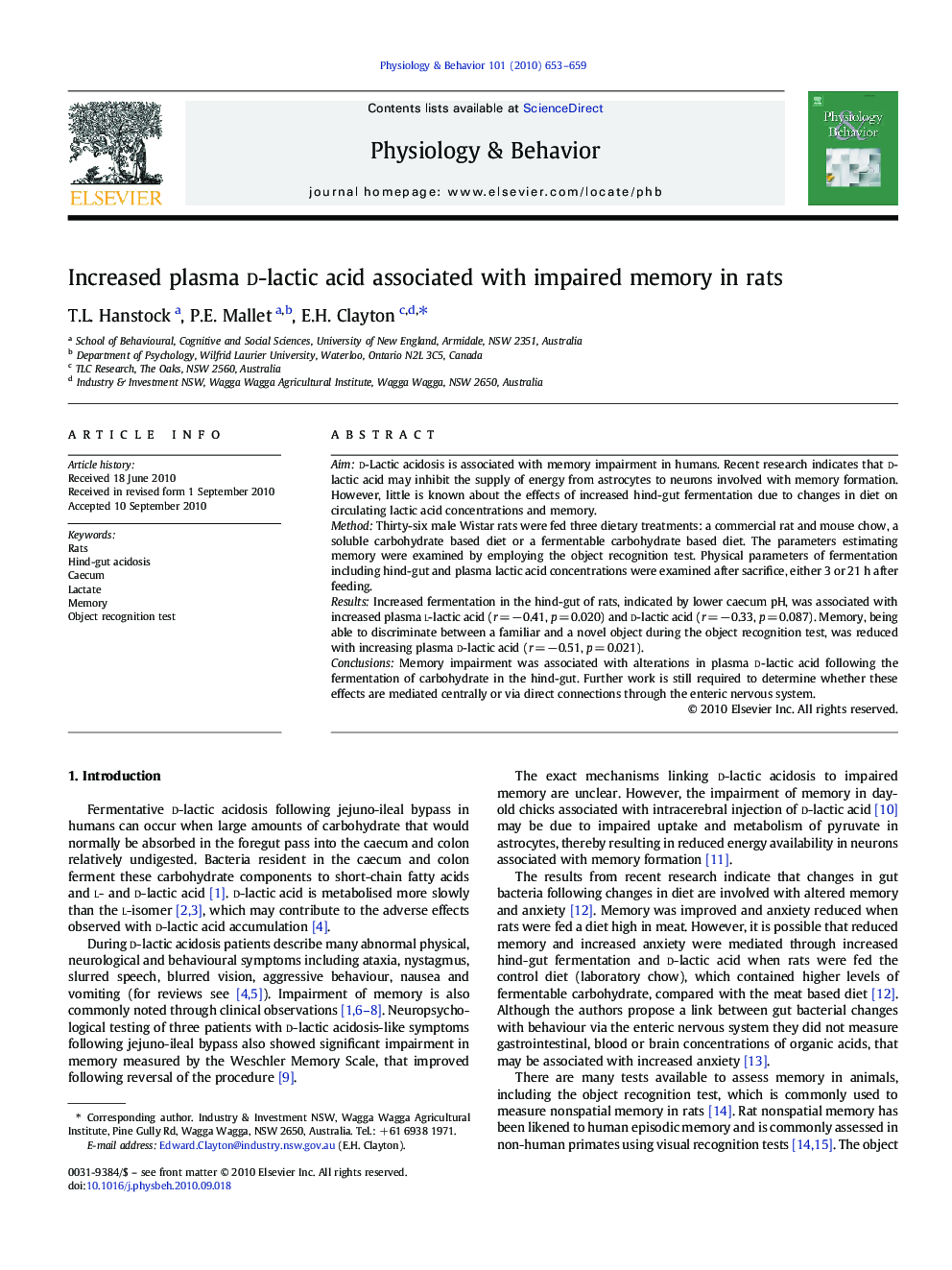| Article ID | Journal | Published Year | Pages | File Type |
|---|---|---|---|---|
| 2844806 | Physiology & Behavior | 2010 | 7 Pages |
Aimd-Lactic acidosis is associated with memory impairment in humans. Recent research indicates that d-lactic acid may inhibit the supply of energy from astrocytes to neurons involved with memory formation. However, little is known about the effects of increased hind-gut fermentation due to changes in diet on circulating lactic acid concentrations and memory.MethodThirty-six male Wistar rats were fed three dietary treatments: a commercial rat and mouse chow, a soluble carbohydrate based diet or a fermentable carbohydrate based diet. The parameters estimating memory were examined by employing the object recognition test. Physical parameters of fermentation including hind-gut and plasma lactic acid concentrations were examined after sacrifice, either 3 or 21 h after feeding.ResultsIncreased fermentation in the hind-gut of rats, indicated by lower caecum pH, was associated with increased plasma l-lactic acid (r = −0.41, p = 0.020) and d-lactic acid (r = −0.33, p = 0.087). Memory, being able to discriminate between a familiar and a novel object during the object recognition test, was reduced with increasing plasma d-lactic acid (r = −0.51, p = 0.021).ConclusionsMemory impairment was associated with alterations in plasma d-lactic acid following the fermentation of carbohydrate in the hind-gut. Further work is still required to determine whether these effects are mediated centrally or via direct connections through the enteric nervous system.
Research Highlights► Diets differing in fermentable carbohydrate altered fermentation in the hind-gut. ► Fermentation in the hind-gut of rats was associated with increased plasma lactic acid. ► Memory was reduced with increasing plasma d-lactic acid.
